Deer Hunter, The (1978)
“What did you do — win the war all by yourself?”
|
Synopsis: |
|
Genres, Themes, Actors, and Directors:
Response to Peary’s Review: He argues that Cimino’s use of “Russian roulette as a metaphor — probably for the insanity of Vietnam, where there is no logic to who lives and who dies” — makes “us believe that our POWs were subjected to such treatment as a matter of course, when in fact there have never been reports of ‘Russian roulette’ during the war.” He concedes that the film has “visual power, a convincing performance by Walken (who won a Best Supporting Actor Oscar): … and a couple of strong moments between De Niro and Meryl Streep… after De Niro returns home.” But he notes that the “prewar scenes, involving the three men who are about to go to war and their male buddies, are as self-consciously directed and self-indulgent as the worse sequences in John Cassavetes’s films”: … and “the wedding, full of characters ‘acting natural’ and being rude, stupid, and boring… is interminable.” In Alternate Oscars, Peary refers to this film as a “con job” (!), voting for Coming Home (1978) as the superior film from the same year on a similar topic, and giving a Best Picture nomination nod to the underrated Go Tell the Spartans (1978) as well. I’m essentially — though perhaps not as vehemently — in agreement with Peary’s review, and also appreciated reading DVD Savant’s critical take-down of this much-lauded film, which he argues “slickly pushes the same old blather about honor and presents a story that grows increasingly pretentious.” Indeed, given the power of its imagery (Vilmos Zsigmond’s cinematography is consistently stunning) and the infamously harrowing Russian roulette sequences, it’s disappointing that “this ‘progressive’ war movie” is really “the old BS in a different package,” in which “the tough survivors are the real men, and the others had unfortunate but fatal weaknesses.” I’m not sure it’s fair to reduce the three central characters to such descriptors, but it’s certainly true that De Niro’s stoic warrior emerges as the de facto hero of the piece, which is problematic. Film fanatics will likely be curious to check this film out once, but a “once-and-done” is plenty. Redeeming Qualities and Moments: Must See? Categories
(Listed in 1001 Movies You Must See Before You Die) Links: |
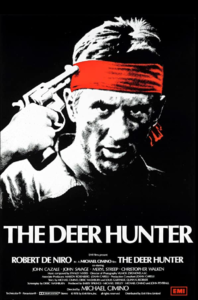
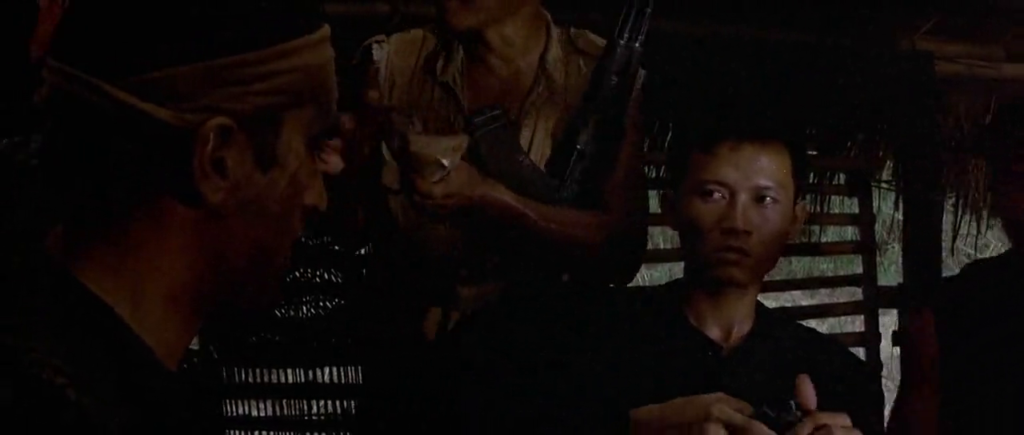
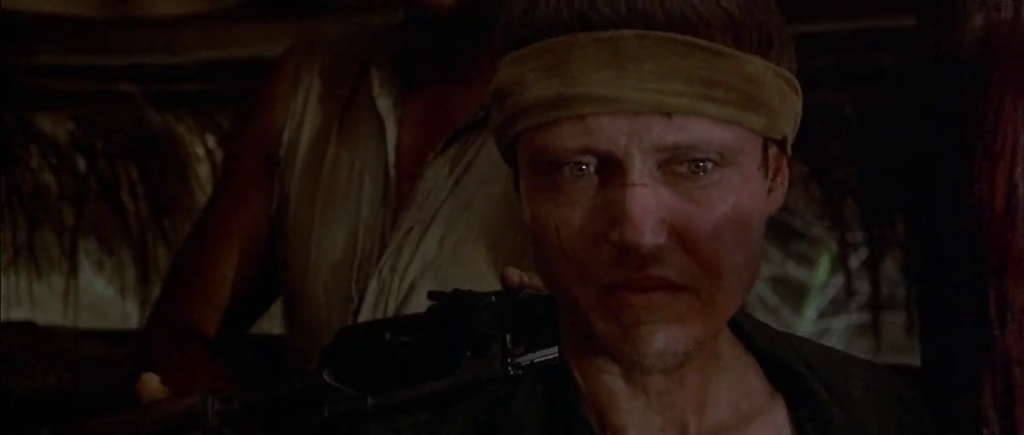
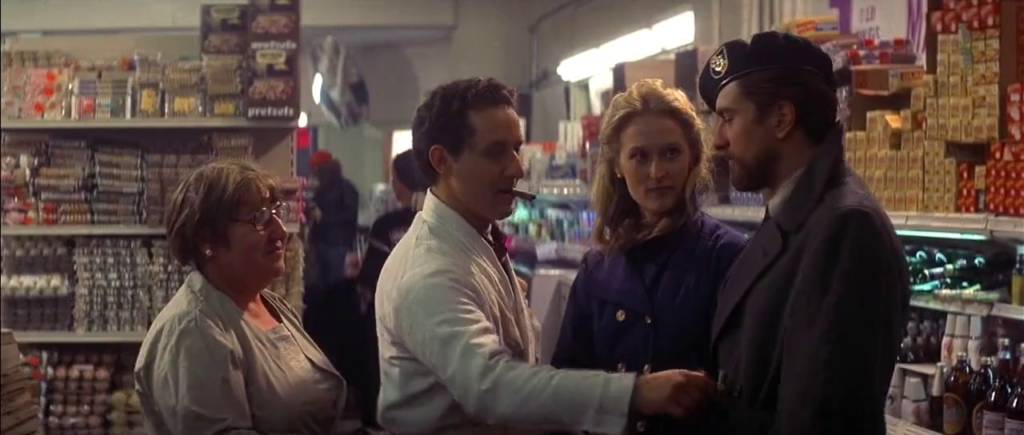
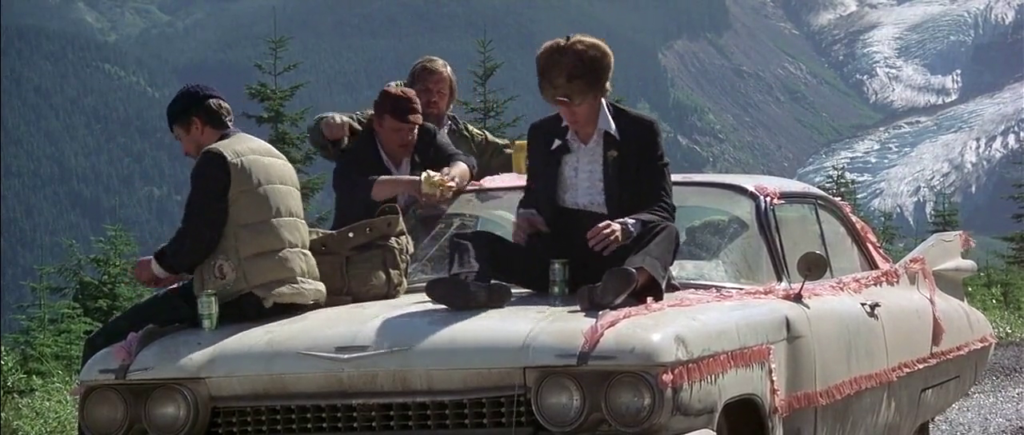
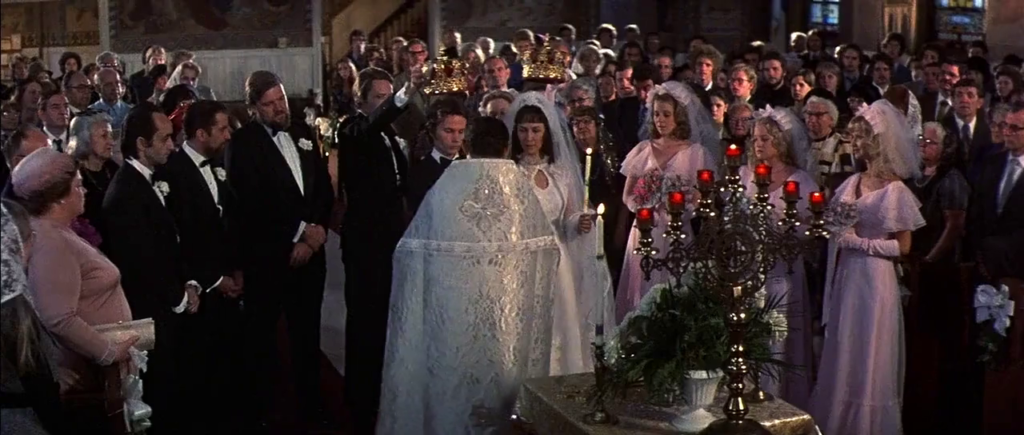
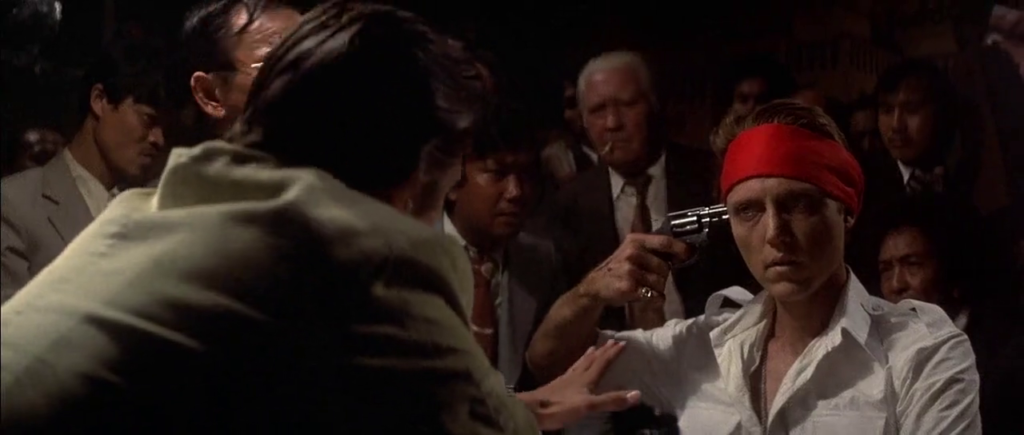
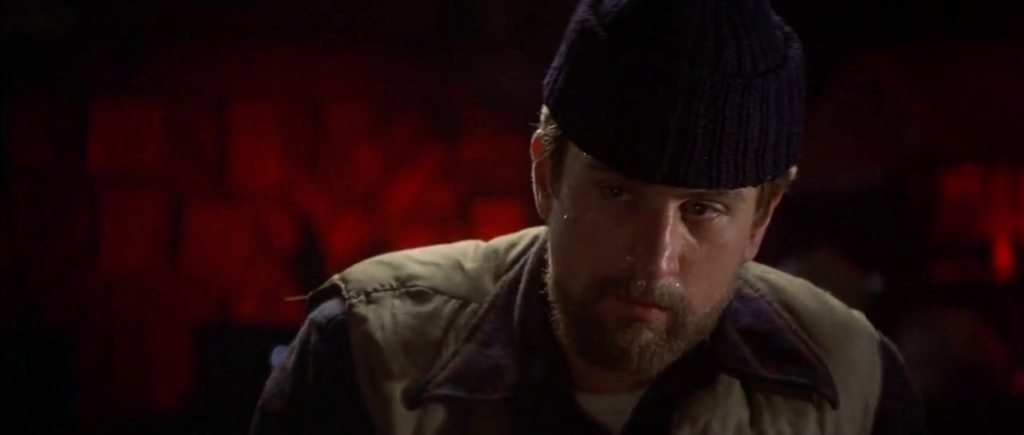
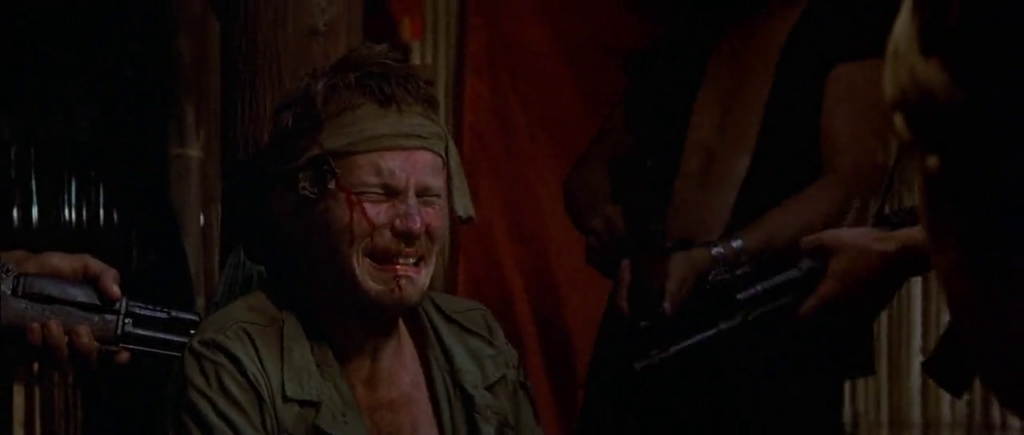

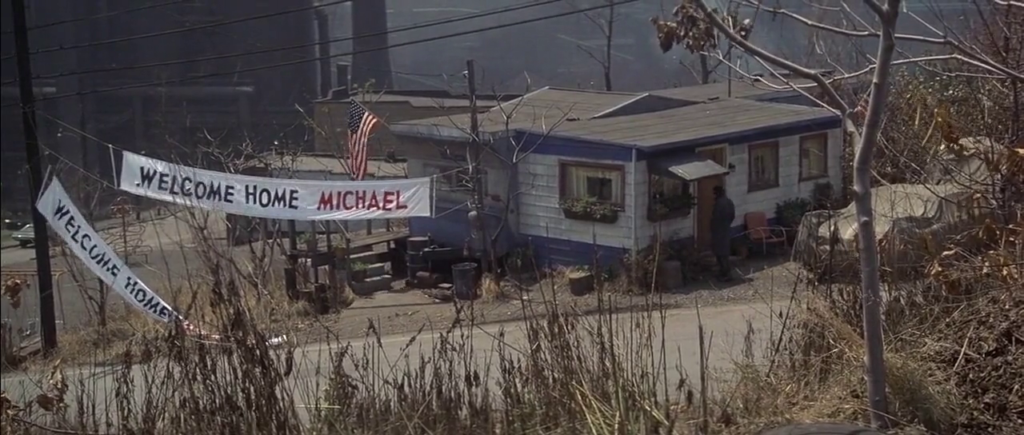
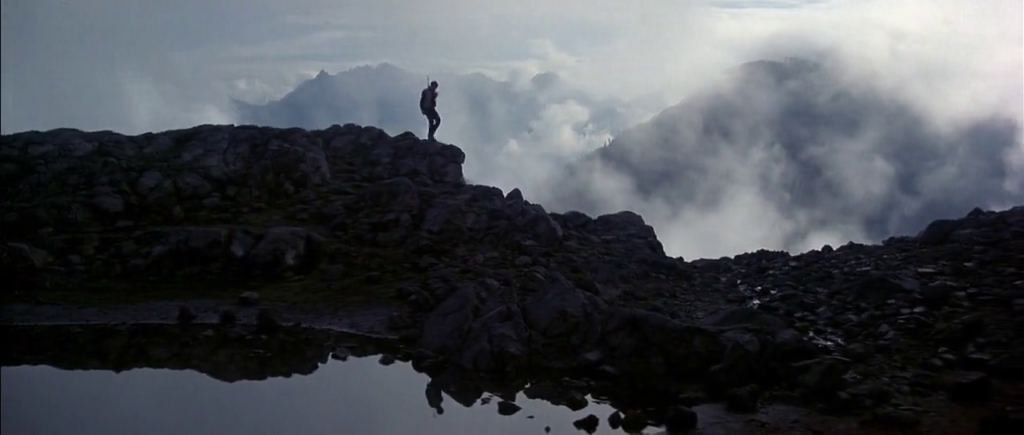
8 thoughts on “Deer Hunter, The (1978)”
Not must-see, its Oscar-winning status notwithstanding. Not that it shouldn’t be seen – but I find it optional. I think it’s an overrated film.
It’s interesting that the Russian roulette inclusion was lifted from an unproduced screenplay (by two men who did not write the ‘Deer Hunter’ script but are credited for its storyline) – which takes place in Las Vegas, a place where playing Russian roulette probably makes more sense.
I also find it interesting that Streep agreed to her thankless role in the film for one reason: to be near then-boyfriend Cazale, who was terminally ill.
It’s definitely over-rated, and I went back and forth on my “must see” or “not must see” status. I could go either way.
I ultimately figured film fanatics will be curious enough to want to check it out as part of movie history, especially given the controversy surrounding the inclusion of the (fictional) Russian roulette sequences. Those sequences are famous enough that they should be seen, regardless (and are easily available on YouTube). But there’ s a heck of a lot more movie to get through before and in between those.
I’m no fan of the film; haven’t seen it in a very long time and agree with both if you that it’s overrated, but I’d say it’s must see for FFs as a highly regarded film of the era.
I much prefer Cimino’s Year of the Dragon (1985).
As a FF, I think all best pictures should be seen – even if overrated. I saw the film in 1978 in a theater with my sister and her then boyfriend (a Vietnam vet). I was 14. He was taken aback by the Russian Roulette scenes and wondered if it was an analogy for PTSD (not that it was called that in 1978).
I recently watched it again, and the movie is completely overrated. Some of the performances were great, and the production was very strong, but the ending really seemed cliched.
Cimino was hot stuff afterwards. Hence, Heaven’s Gate. Frankly, I recently saw a pristine director’s cut of Heaven’s Gate, and I may actually like that film slightly better (minus animal cruelty allegations).
Both are once must see films in my opinion, one for being a best picture, and the other for basically bankrupting United Artists (and being better than its reputation – as long as you get the correct version).
I understand your viewpoint but, esp. for the purpose of this site, it seems to me a lot depends on your definition of ‘must-see’.
Admittedly, the reason doesn’t always have to be because the particular film is a worthy one. (For example, though it was made after the period of Peary’s book, I would call ‘Showgirls’ a must-see, simply because it’s such a singular trainwreck! 😉 )
For this site, I’ve taken the approach of calling things ‘must-see’ if I feel they are of real value as film experiences. I don’t feel that all Oscar winners are of real value – though they may certainly be ‘optional’.
The Oscars are very much like a high school competition – and voters choose accordingly. Sometimes they’re particularly ‘accurate’; sometimes not.
This is just my opinion as a guide for myself through the site. I don’t expect others to share that opinion.
btw: I saw the director’s cut of ‘Heaven’s Gate’. While I don’t think it’s a great film, it’s not nearly the embarrassment that many feel it is.
And I certainly understand your viewpoint, David. Agree completely that the Oscars are very erratic (“Greatest Show on Earth” is one example). Love how you liken it to a high school competition.
Everyone’s definition is open to interpretation, and I certainly respect every contribution you’ve made on this site.
Regarding Showgirls – pretty notorious as a big budget NC-17 picture. Pretty awful in a lot of ways, but certainly would’ve been a definition of must see.
“Must See” certainly doesn’t mean that it is a “good” film. There are plenty of good films I would not call “must see.” Just like there are plenty of “bad” or “mediocre” films that are “must see.”
Great thoughts!
In agreement, thanks! 😉
My view on “must see” is a film of some significance that usually has some kind of impact on the cinematic landscape be it a critical darling, artistically significant, a technological breakthrough, a populist classic or just plain highly influential on trends.
There are many films that I’m personally not keen on that would rate as “must see” on that score.